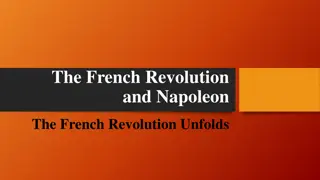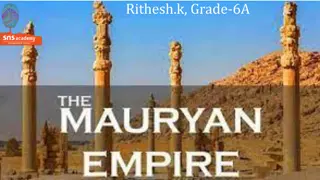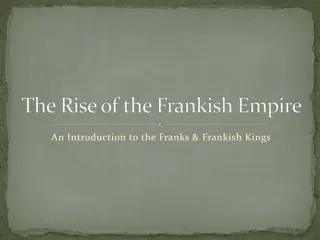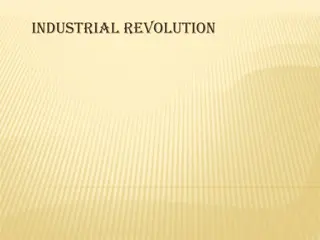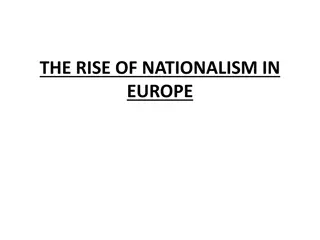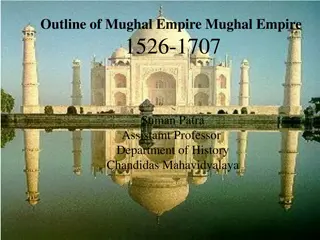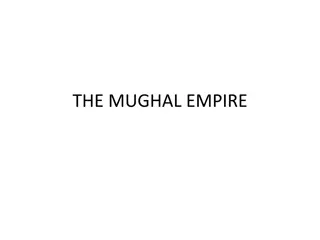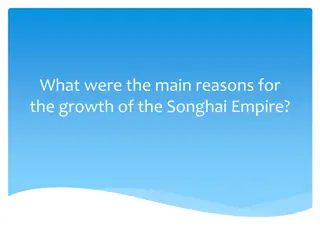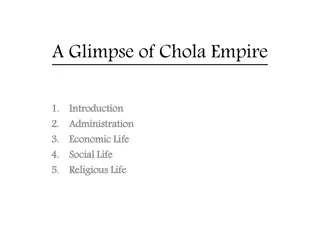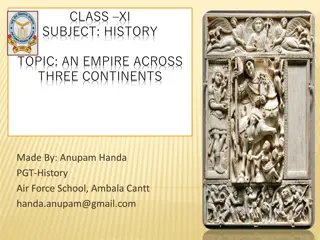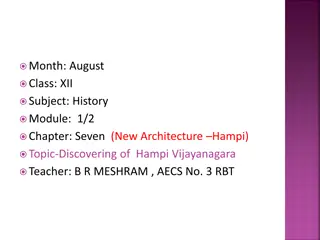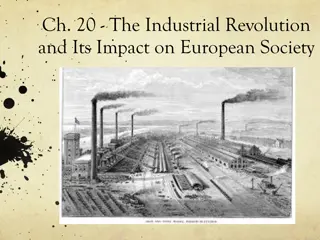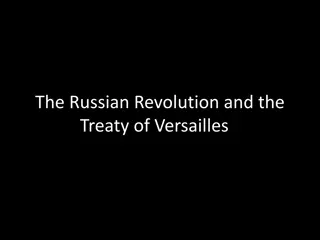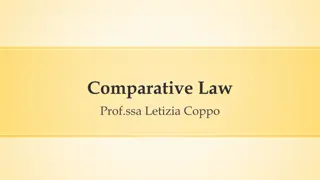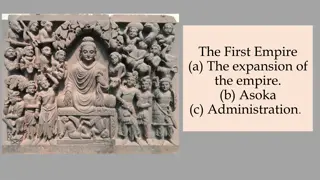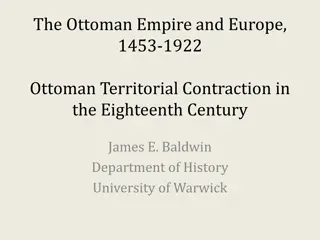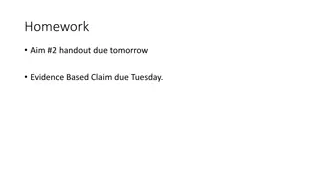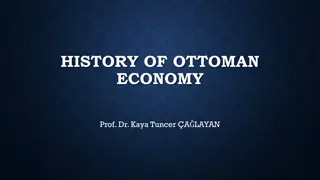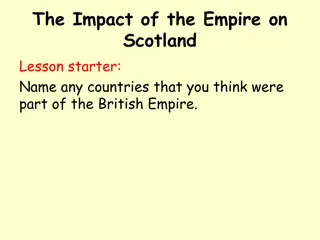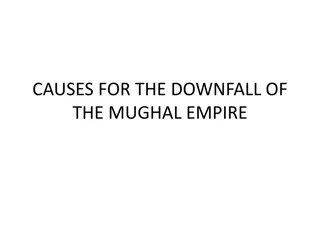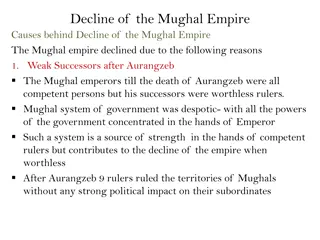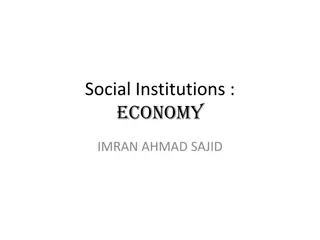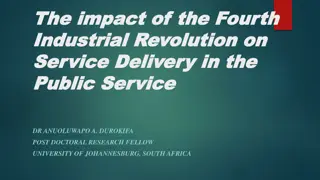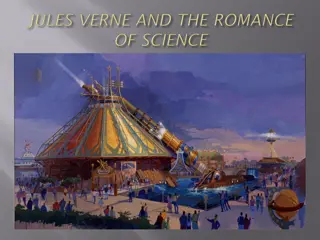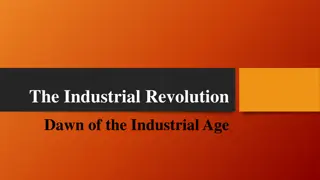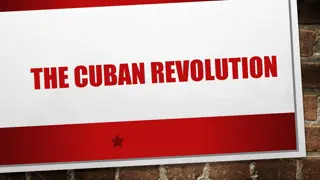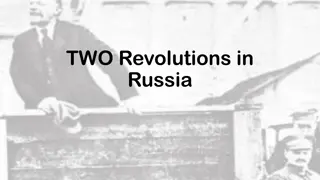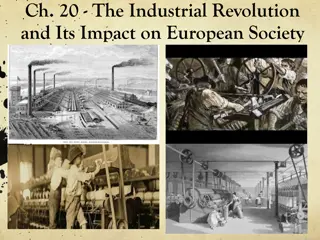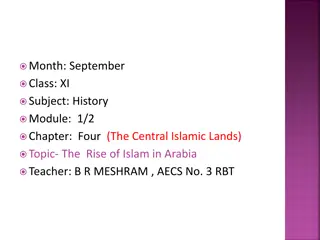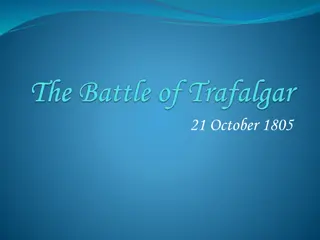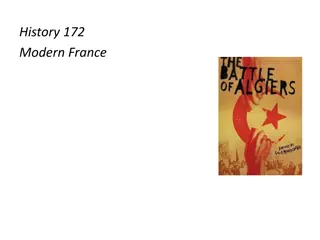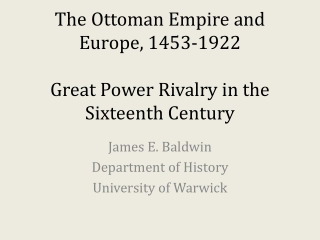Rise of Napoleon: From Revolution to Empire
Napoleon's rapid ascent to power, from his early military career during the French Revolution to crowning himself Emperor in 1804, marked by strategic victories, political maneuvers, and absolute rule that garnered both admiration and criticism.
Download Presentation

Please find below an Image/Link to download the presentation.
The content on the website is provided AS IS for your information and personal use only. It may not be sold, licensed, or shared on other websites without obtaining consent from the author. Download presentation by click this link. If you encounter any issues during the download, it is possible that the publisher has removed the file from their server.
E N D
Presentation Transcript
The French Revolution and Napoleon The Age of Napoleon
Napoleons Rise to Power Napoleon dominated France from 1799 to 1815 To some, he was considered a hero, to others an evil force
Napoleons Rise to Power Napoleon was born in Corsica and sent to France at age 9 to be trained for the military When the revolution broke out he was an ambitious 20-year-old artillery lieutenant Favored the Jacobins and republican rule, but found the conflicting ideas of the revolution confusing
Napoleons Rise to Power During the turmoil of the revolution, Napoleon rose quickly in the army December 1793- drove British forces out of the Port of Toulon Captured most of northern Italy, winning battles against the Austrians and forced the Hapsburg emperor to sue for peace
Napoleons Rise to Power Led an expedition to Egypt in 1798 in an attempt to disrupt British trade with India Though it was a disaster, he hid news of his worst losses by establishing a network of spy s and censoring the press 1799: moved from victorious general to political leader
Napoleons Rise to Power Napoleon helped overthrow weak Directory and set up the 3-man Consulate Drew up another constitution and took the title First Consul 1800: forced Spain to return Louisiana Territory 1802: named himself consul for life
Napoleon Crowns Himself Emperor By 1804, Napoleon acquired enough power to crown himself emperor Although he invited the Pope to oversee the crowning ceremony, he took the crown from the Pope and placed it on his own head, showing he owed the throne to no one but himself
The People Vote During each stage of his rise to power, he allowed the people to vote on his actions Each election, the people strongly supported him Though the people theoretically had a say in government, Napoleon held absolute power People supported him due to the policies he carried out
Napoleons Reforms Napoleon strengthened the central government and made his goals order, security, and efficiency Encouraged economic prosperity by controlling prices, encouraging new industry, and building roads and canals
Napoleons Reforms Set up schools under government control to ensure educated officials and military officers Made peace with the Catholic Church by keeping the Church under state control but ensuring religious freedom for Catholics Recognized peasants right to land and encouraged emigres to return if they take the oath of loyalty Opened jobs to all based on talent and brought social stability and order
Napoleons Reforms Wrote the Napoleonic Code- a new code of laws Embodied Enlightenment principles of equality before the law, religious toleration, and abolition of feudalism Undid some of the reforms of the French Revolution such as women losing many of their newly gained rights Valued order and authority over individual rights
The Empire of Napoleon Between 1804 and 1812 Napoleon successfully battled the combined forces of the European powers Napoleon s Empire reached its greatest extent in 1812
The Empire of Napoleon Napoleon valued rapid movements and developed new battle plans so opposing generals could not anticipate his tactics He added the Netherlands, Belgium, and parts of Italy and Germany Abolished the Holy Roman Empire and created the Confederation of the Rhine under French protection
The Empire of Napoleon Napoleon controlled much of Europe through forceful diplomacy Placed friends and relatives on the thrones of Europe Napoleon s successes boosted the spirt of nationalism within France
Napoleon Strikes Britain Britain alone remained outside Napoleon s empire Relied on its sea power to stop Napoleon s drive to rule the continent Though Napoleon planed to invade England in 1805, he was defeated by Admiral Horatio Nelson at Trafalgar
Napoleon Strikes Britain With invasion ruled out, Napoleon struck Britain s commerce through the Continental System Napoleon closed European ports to British goods Britain responded with its own blockade of European ports During the war, Britain and France seized ships from neutral countries accused of trading with the other side, including the US
Napoleon Strikes Britain The Continental System failed French navy couldn t close British supply lines while Britain s blockade of Europe caused prices to soar Soaring prices caused European resentment of French power French armies did spread revolutionary ideas throughout Europe and the Napoleonic Code was adopted in many countries
Napoleon Faces Challenges Although Napoleon was very successful, his successes also worked against him The nationalism that drove the French army also spurred resentment among other Europeans Saw Napoleon as an oppressor and resented the Continental System and Napoleon s attempt to force French culture on them
Napoleon Faces Challenges Though France overthrew the Spanish king, many in Spain remained loyal to him French attempted a brutal repression of the Spanish, which only fueled Spanish nationalism Spanish patriots conducted a guerrilla war campaign attacking French supply trains and troops
Napoleon and Russia Though Russia originally sided with France, the Continental System had negative effects on the Russian economy Tsar Alexander I eventually withdrew his support for the Continental System
Napoleon and Russia Napoleon responded by assembling an army with soldiers from 20 nations known as the Grand Army 600,000 soldiers 50,000 horses In 1812, with the Grand Army Napoleon invaded Russia
Napoleon and Russia Russia responded to the invasion by avoiding battles with Napoleon and retreating, practicing a scorched-earth policy (Burned all crops and villages as they went) Left the French army without food, which became worse with the onset of the Russian winter
Napoleon and Russia Napoleon entered Moscow in September He realized he could not supply his army through the winter In October he turned his troops around and began the 1,000-mile retreat from Moscow Russian attacks and brutal winter turned the retreat into a desperate battle of survival with fewer than 20,000 soldiers from the Grand Army surviving
Napoleon Falls From Power The disaster in Russia shattered Napoleon s reputation for success The defeat brought a new alliance of Russia, Britain, Austria, and Prussia against France 1813: the Sixth Coalition defeated Napoleon in the Battle of the Nations at Leipzig
Abdication and First Exile In 1814, Napoleon abdicated (stepped down from power) The Sixth Coalition exiled him to Elba and recognized Louis XVIII, brother of Louis XVI as king of France
Louis XVIII Restoration did not go smoothly Agreed to accept the Napoleonic Code and land settlements made during Revolution Emigres rushed back to France bent on revenge Economic depression and the fear of a return of the old regime helped rekindle loyalty to Napoleon
Napoleons Return While the victorious allies were gathering in Vienna for the peace conference, Napoleon escaped exile and returned to France Napoleon gathered French soldiers and triumphantly entered Paris in March 1815
Napoleon at Waterloo Napoleon s return only lasted 100 days while the allies reassembled their forces June 18, 1815 Napoleon and the allies met at Waterloo in Belgium The British under the Duke of Wellington and a Prussian army crushed the French and Napoleon again forced to abdicate Napoleon sent to the island of St. Helena never to return
Napoleons Legacy Napoleon died in 1821 in exile Legacy debated to this day: the revolution on horseback or a traitor to the revolution Napoleonic Code consolidated changes of the revolution France became a centralized state with a constitution
Napoleons Legacy Napoleon s conquests spread ideas of the revolution across Europe Sparked nationalist feelings across Europe Abolition of the Holy Roman Empire helped to create Germany His decision to sell the Louisiana territory doubled the size of the US
Congress of Vienna After Waterloo, the diplomats and heads of state of the Allies convened at the Congress of Vienna Faced the task of restoring stability and order after the Napoleonic Wars Met from September 1814 to June 1815
Congress of Vienna The work of the Congress fell to Prince Clemens von Metternich of Austria, Tsar Alexander I of Russia, and Lord Robert Castlereagh of Britain France was represented by Prince Charles Maurice de Talleyrand Chief goal of the Congress was to create a lasting peace by establishing a balance of power and protecting the system of monarchy
Congress of Vienna Each leader pursued his own goals Talleyrand shrewdly played the other leaders against each other so France would be accepted as an equal partner Peacemakers also wished to redraw the map of Europe and ringed France with strong countries to contain France
Congress of Vienna Attempted to turn back the clock to 1792 by restoring hereditary monarchies that the French Revolution or Napoleon had unseated Placed Louis XVIII back onto the throne in France Although they created new alliances and met periodically to keep the peace, the failed to foresee how powerful new forces such as nationalism would shake the foundations of Europe and Latin America


